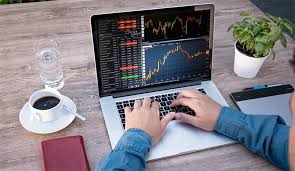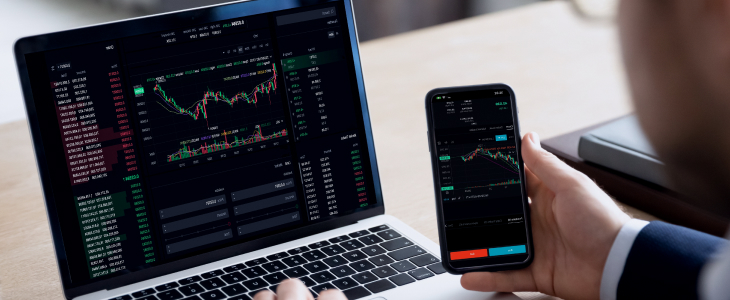Understanding Forex Trading A Beginner’s Guide to Currency Exchange
traiding1 October 27, 2025


What is Forex Trading?
Forex trading, also known as foreign exchange trading or currency trading, is a global decentralized market where all the world’s currencies are traded. It is the largest financial market globally, with a daily trading volume exceeding $6 trillion. Unlike stock markets, the forex market operates 24 hours a day, five days a week, allowing traders to engage in currency transactions at any time. For a more detailed understanding of the forex market and its mechanisms, you may want to check out what is forex trading https://acev.io/.
The Basics of Forex Trading
In forex trading, currencies are traded in pairs, such as EUR/USD or USD/JPY. When a trader buys a currency pair, they are purchasing the first currency and selling the second. The goal is to profit from fluctuations in exchange rates. For example, if a trader believes that the Euro will strengthen against the US Dollar, they will buy the EUR/USD pair. If the Euro increases in value, the trader can sell the pair for a profit.
Currency Pairs and Quotes
Currency pairs are categorized into three types: major, minor, and exotic pairs. Major pairs include the most traded currencies globally, such as the Euro, US Dollar, and Japanese Yen. Minor pairs include other currency combinations that are less frequently traded, while exotic pairs comprise a major currency paired with a currency from a developing economy.
When reading a currency pair quote, the first currency listed is known as the base currency, and the second is the quote currency. The quote indicates how much of the quote currency is needed to purchase one unit of the base currency. For example, if the EUR/USD is quoted at 1.20, it means that 1 Euro is equivalent to 1.20 US Dollars.
How Forex Trading Works

Forex trading takes place over-the-counter (OTC), meaning that transactions occur directly between parties rather than on a centralized exchange. Traders can work with brokers who provide access to the forex market through trading platforms. These platforms usually offer a variety of analytical tools, charts, and real-time data to assist traders in making informed decisions.
In forex trading, leverage plays a significant role. Leverage allows traders to control larger positions with a smaller amount of capital. For example, with a leverage of 100:1, a trader can control a position worth $100,000 with just $1,000. While leverage can amplify profits, it also increases risk, making it essential for traders to implement risk management strategies.
Market Participants
The forex market consists of various participants, including central banks, financial institutions, corporations, and individual traders. Central banks play a crucial role in controlling currency supply and influencing exchange rates through monetary policy. Financial institutions, such as banks and hedge funds, often engage in forex trading for speculation or to hedge against currency risk. Individual traders, including retail traders and investors, participate in the market seeking to profit from currency movements.
Factors Influencing Forex Markets
Numerous factors affect currency values and forex trading decisions. Understanding these factors can help traders anticipate market movements and make more informed trading decisions.
Economic Indicators
Economic indicators, such as GDP growth rates, unemployment figures, and inflation rates, provide insights into a country’s economic health. Strong economic performance typically leads to a stronger currency, while weak performance can lead to depreciation. Traders closely monitor releases of key economic data to gain an understanding of potential market trends.

Geopolitical Events
Geopolitical events, including elections, trade deals, and conflicts, can have a significant impact on currency values. For example, political instability in a country can lead to a decrease in investor confidence, resulting in a sell-off of that country’s currency. Conversely, favorable trade agreements or stable political environments can lead to currency appreciation.
Market Sentiment
Market sentiment, or the overall attitude of traders toward a particular currency, can drive price movements. Sentiment can be influenced by various factors, including economic reports, news events, and technical analysis. Traders often use sentiment analysis tools and indicators to gauge market emotions and make trading decisions accordingly.
Risks and Rewards of Forex Trading
While forex trading can offer significant profit opportunities, it also comes with considerable risks. One of the primary risks is market volatility, where rapid price changes can lead to substantial losses. Additionally, the use of leverage increases both potential profits and potential losses, raising the stakes for traders.
Risk management strategies, such as setting stop-loss orders and limiting position sizes, are essential for protecting capital and minimizing losses. Successful traders often emphasize the importance of education, discipline, and continuous learning to navigate the complexities of the forex market.
Conclusion
Forex trading is an exciting and dynamic market that offers traders numerous opportunities for profit. By understanding the basics of currency trading, market participants, and the factors that influence currency pairs, traders can develop effective strategies to navigate this complex financial landscape. As with any investment, thorough research, risk management, and a solid trading plan are crucial to achieving success in forex trading.
 Contact Us
Contact Us